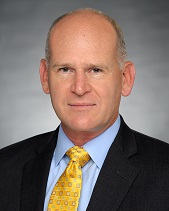The Centers for Medicare and Medicaid Innovation (CMMI) has just announced that non-binding letters of intent (LOI) from health organizations who are serving Medicare beneficiaries in one of 15 different Core Based Statistical Areas (CBSA) around the country and are ready to participate in “Geographic Direct Contracting” must be submitted to CMS by 11:59 p.m. PT, December 21, 2020. LOIs must be submitted through this link to: Geographic Direct Contracting Model Letter of Interest.
CMS created the three options of the Direct Contracting Model program – Professional, Global and Geographic – to expand opportunities for more diverse providers and health care organizations to participate in value-based care arrangements in the Medicare fee-for-service (FFS). All three models allow providers to access capitation without contracting through a Medicare Advantage plan.
CMS will select applicants from a subset of the following 15 CBSAs for this initial round: Atlanta, Dallas, Denver, Detroit, Houston, Los Angeles, Miami, Minneapolis, Orlando, Phoenix, Philadelphia, Pittsburgh, Riverside, San Diego and Tampa. In the Geographic model, health plans or large provider groups will contract with CMS to take risk for Medicare FFS beneficiaries across an entire region. CMS will use the LOI to determine the final regions in which CMS will solicit participants. The request for applications will be made available in January 2021, and applications are due on April 2, 2021. CMS will select model participants by June 30, 2021. The first three-year performance period will run from January 1, 2022 through December 31, 2024. A second three-year performance period will run from January 1, 2025 through December 31, 2027.
The contracted entity assumes 100% financial risk and will have the opportunity to offer additional benefits to beneficiaries, lower deductible or lower premiums and lower cost sharing as well as gain more flexibility on components like care management. Within this program is a voluntary total care capitation option, which includes a capitated, risk-adjusted payment for all services the contracted agency provides. In turn, that entity could contract for value-based payment (VBP) with downstream providers, such as hospice or a skilled nursing facility.
Participants in the Geographic model may also build preferred provider networks to move providers off Medicare FFS rates. However, Medicare enrollees retain their right to see any Medicare provider, which limits the effectiveness of “restricted” networks. CMS’ movement on the Geographic Direct Contracting initiative should sound a warning bell for provider organizations wavering on whether to enter into VBP arrangements or not. As experts have noted, success in VBP contracts is an essential strategic component. Fortunately, most of the critical elements to achieve success in the Direct Contracting models or other VBP contracts are foundational to success in any payment model, FFS or VBP. These include:
- Focus on workflows, systems and partnerships that support care coordination activities
- Build connections to needed healthcare and wrap-around services support all quality services
- Support providers in attaining quality benchmarks while managing overall utilization
- Access to real-time actionable information to drive timely interventions and coordination activities
The intent to award contracts to provide direct contracting services in the subset of CBSAs in which applicants are selected comes on the heels of CMS announcing 51 participants in the 2020-2021 contracting period for the Professional and Global models. It is unclear whether CMS would award a Geographic contract in an area where CMS has signed one or more direct contracts with preferred providers or whether a provider or payor already accepted for Medicare Direct Contracting Global could transition into Geographic through this next application process.
During this pandemic and its aftermath, accountable care models will be ever more important to better focus on population health and lowering medical spending. Seeing the growth and successes of Medical Advantage “risk payment” program, the federal government is continuing to place significant bets on value-based care to reduce Medicare spend, while improving quality of care for Medicare FFS beneficiaries.
For more information on various models of Medicare Direct Contracting or for a complimentary session to discuss if MDC is right for you, please contact Allen Miller, Principal & CEO of COPE Health Solutions at amiller@copehealthsolutions.com or 310-386-5812 or Andrew Snyder, MD, Principal & CMO of COPE Health Solutions at asnyder@copehealthsolutions.com or 401-225-9417.
.

